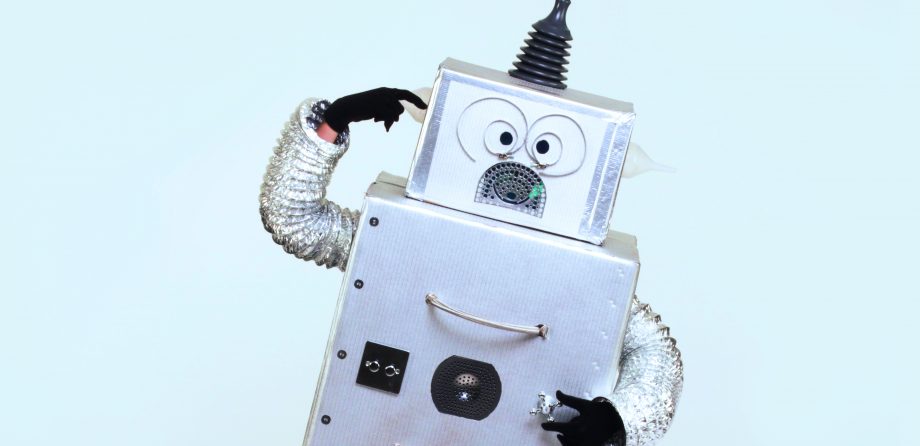After a tedious half hour on the phone to the DVLA (Driver and Vehicle Licensing Agency), all I really wanted was to speak with a human being. I needed to ask them something that wasn’t on their robotic menu, but unfortunately I couldn’t pass through their fancy voice recording and I got bored, annoyed, angry and gave up! I couldn’t be sitting here at work listening to a robot voice over and over again. It turned out the only way they can listen to you is when you do nothing at all. After a few minutes of silence on my part, suddenly a miraculous voice appeared, saying “I will pass you through to our next available adviser”.
This made me realise that although I’m not a very ‘people-person’, I was really missing the human interaction. To be honest, I felt a bit like Tom Hanks on ‘Cast Away’ without his Wilson…
In this moment of frustration I Googled “WILL ROBOTS TAKE MY JOB?” and who knew, there’s actually a website that tells you how susceptible jobs are to computerisation. According to research and advisory firm, Forrester, their analysis suggests that, by 2019, 25% of all job tasks will be offloaded to software robots, physical robots, or customer self-service automation.
I must say, I felt less worried, and actually happy, in seeing that the results for my job as a Head of Creative has a less than 10% chance of being replaced by robots. But, what does that mean for some of my colleagues – could they be at risk of being replaced by robots? The general trend suggests that, for the foreseeable future, most roles within the creative and arts industries are reasonably immune to these changes. I guess this is the future and the reality we need to embrace; AI and computerisation are here to stay, and people and companies will need to adapt to the technology, new methods of job training and management, amongst a host of other things.
One thing I’m sure of is that human beings, are human beings and we will always crave human interactions with real emotions. Robots may be able to perform tasks quicker, more efficiently and cheaper, but there are things that are unique to humans – emotional intelligence, culture, humour, empathy and intuition to name a few.
When I was on the phone to DVLA, I became frustrated because I felt trapped. I was stuck in a process, and nothing I said would make the robot on the other end budge from it.
We want to be treated like humans, and this experience showed me that only another human can achieve this. Human nature is not programmable. Our interactions are spontaneous, responsive and intuitive. A human voice communicates so much more than words alone – our tone and pitch can transmit more emotion and meaning than a robot’s voice ever could.
The importance of human interaction is nowhere more clear than in Customer Service. Putting your customers first means treating them like humans, with the care and respect they want – and deserve.
Robocop, R2-D2 and the Terminator are super cool! But would they ever do your job as well as you?
Find out how to create harmony between humans and robots in our white paper on Customer Experience.
Ricardo Cabrita
